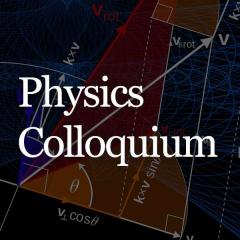Space sustainability: from dark skies to envisioning a future for space launches
Speaker: Dr Michele Bannister
Affiliation: University of Canterbury
Abstract
The rapid industrialization of the near-Earth environment, through the scale-up of both launch and orbital activity, is changing our sky. Our chemistry-climate modelling shows accelerating launch rates would drive changes in stratospheric ozone – I’ll discuss ways the aerospace industry could adapt. Aotearoa New Zealand’s dark skies are some of the best remaining on the planet, yet are now showing the effects of both domestic light pollution and satellite constellation build-out. The intersection between astronomy, policy and space law as a result of this rapid space industrialisation may lead us to an aspirational future – or one where major observatories, such as Rubin Observatory, have to devise ever-evolving strategies in order to cope.
About Physics colloquium
The Physics Colloquium series hosts a range of speakers from Australia and abroad. The series explores a variety of topics and everyone is welcome to come along. The seminars are open so there is no need to register your attendance.
If you would like to sign up for colloquium announcement emails, you can join the mailing list by sending a blank email to:
- For UQ email addresses: physics-colloquium-others-join@lists.science.uq.edu.au
- For non-UQ email addresses: physics-announce-external-join@lists.science.uq.edu.au
(Note: if you receive physics-all emails, you should already receive these and don't need to sign up again).
Venue
Room: 204 (and via Zoom:
https://uqz.zoom.us/j/82590260715)

